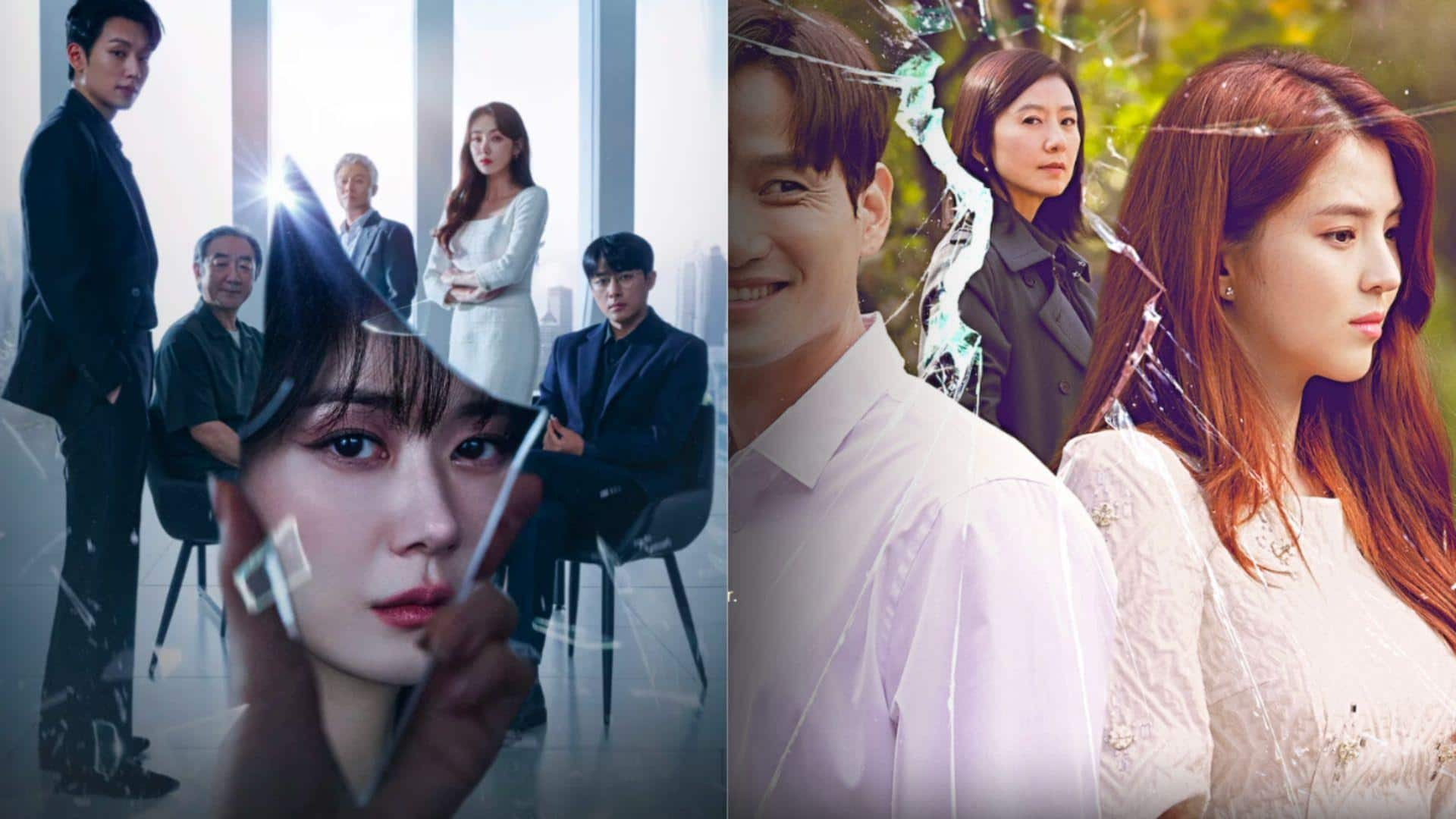
Explainer: Understanding themes, tropes, impact of K-drama subgenre 'makjang'
What's the story
K-dramas are typically characterized by popular genres such as romance, action, horror, and zombie apocalypse. However, there is a subgenre called makjang that takes melodramatic elements to the extreme. These dramas revolve around forbidden love, revenge, infidelity, shocking twists, death escapes, and family secrets (all in one) that would make William Shakespeare blush! Let's dive deeper into the meaning, tropes, and themes of makjang.
Information
First, what exactly is 'makjang'?
Makjang is a slang term used in Korean dramas to describe a situation that is already bad but somehow manages to become even worse. In these shows, characters find themselves dealing with terrible circumstances, only to realize that things can escalate to levels beyond imagination.
Themes
What are the typical themes of 'makjang' storylines?
The narrative of this subgenre usually unfolds around pure, innocent (and often impoverished) characters who bear the brunt of unspeakable events. These dramas typically showcase opulent high-rise settings, where villainous wealthy couples stop at nothing to secure their children's academic success. The storylines delve into political corruption, school bullying, and ruthless manipulation of power—an exploration of the dark underbelly of wealth in South Korea.
'Kimchi' slap
Tropes: You might have heard about the famous 'kimchi' slap!
Makjang took the drama up a notch with the introduction of "food attacks." K-drama enthusiasts might remember the infamous "kimchi slap" from Everybody Say Kimchi (2014), where a middle-aged woman smacks a younger man with a whole cabbage head of kimchi. But it doesn't stop there! Kimbab rolls, deonjang (soybean paste), and even slices of samkyeopsal (pork belly) have been used to attack characters.
Common tropes
Other most common 'makjang' tropes
In the 2013 movie Princess Aurora, a cancer patient chooses not to undergo treatment because he is concerned about "hurting the feelings of his own cancer cells." This is an example of a makjang trope. It also includes super-rich families, secret identities, and cheating partners. Characters survive near-death situations, and when they come back, a simple change like a wig makes them totally unrecognizable.
Main factors behind success
Analyzing factors that make these K-dramas hits
With these captivating stories, viewers can escape reality and immerse themselves in a world of fantasy. Another attraction is the emotional ride that comes with it—where feelings like love and anger can be a cathartic experience. A perfect example is Temptation of Wife, where a woman seeks revenge against her unfaithful husband. With plot twists being a signature feature, makjang K-dramas enhance the excitement.
Reception
'Makjang' dramas: A love-hate affair
While the charm of makjang draws us in, it's not immune to criticisms. Often condemned for their unrealistic plot twists, these dramas frequently push the boundaries of plausibility. Criticism extends to the portrayal of women—often depicted as helpless and emotional, perpetuating gender stereotypes. Concerns also arise about the potential impact on viewers, fearing that makjang K-dramas might foster unhealthy perceptions of relationships and romance.
Recommendations
If you want to experiment, check out these 'makjang' recommendations
Makjang dramas aren't everyone's cup of tea, but if you're up for it, check out popular titles like The Penthouse: War in Life (2020), The Last Empress (2018), and Princess Aurora (2013). You can also add Netflix's SKY Castle (2018), Mine (2021), and Love ft. Marriage and Divorce (2021). Meanwhile, for the ultimate makjang experience, do not miss the classic Temptation of Wife (2008).